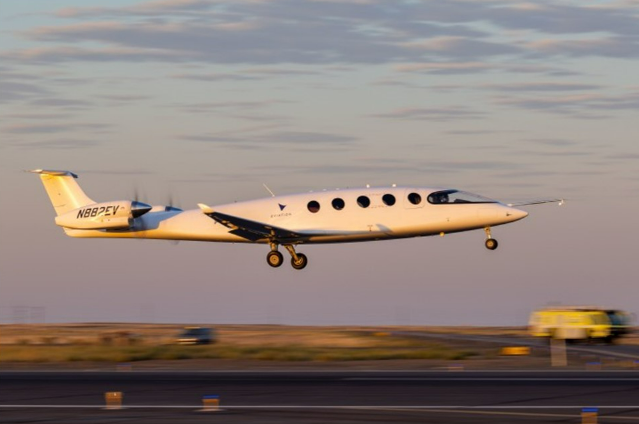The world's first all-electric passenger aircraft has successfully taken to the sky.
Israeli company Eviation Aircraft successfully launched the Alice from Washington's Grant County International Airport.
The zero-emission plane travelled at an altitude of 3,500 feet for it's eight-minute inaugural flight.
It's like getting a history created. We have not seen the propulsion technology change on the aircraft since we went from the piston change to the turbine engine. It was the 1950s that was the last time we saw an entirely new technology like this come together.
With battery technology similar to that of an electric car or a cell phone and 30 minutes of charging, the nine-passenger Alice will be able to fly for one hour and about 440 nautical miles. The plane has a max cruise speed of 287 miles per hour.
Eviation was founded in 2015 and has been pushing Alice forward ever since. The company hopes to use the information gathered to review the next steps and deliver aircraft to customers by 2027. Although, the plan may evolve to change.
The team has actually generated a lot of data with the data acquisition systems that they had for the aircraft. The team is now going to work on an analysis between the models that had been set up and the real performance.
The company is also working on developing an FAA-certified aircraft through 2025. Three different versions of the Alice are in prototype stages: a 'commuter' variant, an executive version, and one specialized for cargo. The commuter configuration holds nine passengers and two pilots, as well as 850 pounds of cargo. The executive design has six passenger seats for a more spacious flight, and the cargo plane holds 450 cubic feet of volume.
The journey of Alice toward take-off has not been without issues. It was expected to fly in 2021 but the process got delayed. Some weather issues hindered testing progress.
Electric engines and battery technologies are driving a 'third age of aviation' where we have a maturity of elements and advanced materials, social will, and financial capabilities. Ultimately, Eviation made a splash by debuting it's technology. The potential for short-haul electric flight is energizing aviation's newest startups.
. . .
References:

